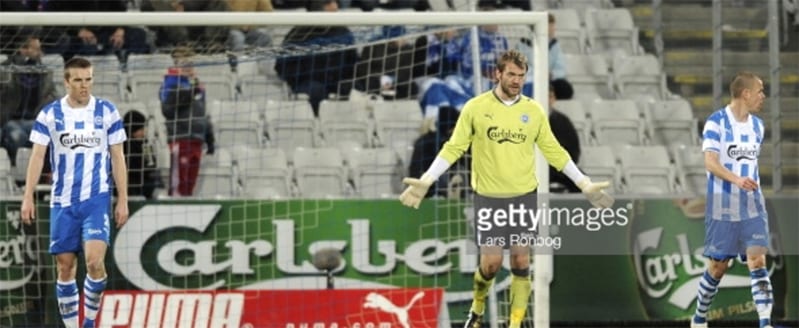Professional footballers have a job that millions of children dream of. They have job that millions of young people strive for. They earn their living by doing what they love. A dream job.
It certainly was my dream, too, to become a professional football player, to play for the German national team and to just be able to play football all day long, every day of the week. And I believe Roy Carroll, the goalkeeper of Northern Ireland’s national team, is pursuing his boyhood dream when he saves balls and flies through the air to make impossible catches.
A personal story of dealing with alcohol problems
But Roy Carroll’s case also shows how hostile and hypocrite the world of professional football has become. The Guardian writes:
Carroll had once signed for Manchester United for £2.5m, among the most promising goalkeepers of his generation, but a decade on he was largely forgotten. He had been in rehab in London under a false name, suffering from alcoholism, and few would touch him.”
Roy Carrol himself says, per The Guardian:
People try to give players a chance and they keep ruining it and ruining it. I had two or three really bad years. I hope people understand: they think footballers have a great life but there can be depression and drink. Players get dragged into things, there are so-called friends. If you’re young, you don’t play and you’re getting £20,000 a week, do you sit in the house? I was concentrating on going out, not on my football, but now my life in Greece is completely different.”
Out of a life of glory, success and achievement he stumbled into alcohol use disorder – and the environment around him in professional sports did not help, to say the least. A back injury prevented him to play in the prestigious 2006 FA cup final. It made it difficult for him to move, let alone play and so difficult six month period started that led to depression. He told The Telegraph:
It depressed me because I’d never had an injury for so long before. I know it sounds stupid but I was lying on the floor for months doing nothing. I couldn’t get up and play with the kids and stuff like that. I was so depressed missing out on so many games. The FA Cup final. The depression put me to drinking a bit more than I should have, there’s no doubt about it. I’m not telling lies about that.”
Pervasive alcohol problems
The National Health Services (NHS) estimates that around 9% of adult men in the UK and 4% of UK adult women show signs of alcohol dependence. And more than 9 million people in England consume more than the recommended daily limits for alcohol intake.
Alcohol problems are pervasive and they affect professional sports, too.

Roy Carroll during his time at Danish Odense BK
In fact, browsing through pictures of Roy Carroll’s career, watching the matches of the EURO 2016 or the Copa America Centenario, I think it it save to assume that professional sports in general and football in particular are intoxicating environments – that make it difficult for players with alcohol problems, to say the least.
Carroll is by no means the only professional footballer who struggled with alcohol use disorder. Every country, and every professional league knows of examples of outstanding players dealing with alcohol problems. Tony Adams, Paul Gascoigne, or George Best are some of the most famous players out of England.
But also current super stars like Arturo Vidal of Chile seem to have problems with alcohol. In fact, The Guardian published a story in August 2013 called “The hidden crisis of mental health among footballers“.
Alcohol sponsorship clearly misplaced, ill-advised
Evidence shows that student athletes sponsored by alcohol brands show greater alcohol problem behaviour than those without alcohol sponsorships. It is facts like this, among many more, that call into question the presence of alcohol brands during football (and other sports).
Having on mind the story of Roy Carroll, isn’t there a better sponsor for the Northern Ireland Football Association than Tennent’s Lager – that belongs via Bass Brewers to the world’s biggest beer producer Anheuser-Busch InBev?
Having on mind the pervasiveness of alcohol harm in society, doesn’t it call into question Carlsberg encircling the football match at every match for a whole month during EURO 2016?
Workplaces are supposed to be alcohol-free, so that they are inclusive and support productive labor, but also so that they support people who struggle with and/ or have overcome alcohol problems.
Isn’t it mind boggling that football pitches, of all places, are environments that make it more difficult, not easier, to be free from alcohol?
There are many reasons why alcohol brand marketing is misplaced in professional sports. To my mind, the well-being of the players during and after their career and the environments that they do their jobs in, should make it as easy as possible to be healthy. For those few that ever make into professional football, their dream should not become a nightmare, just because the alcohol industry needs a marketing platform.
Maik, I am looking for you. There is a question I need to answer you once more.
We have been working with people in their communities around the world for more than 160 years. We do this with people from the respective communities for those communities, based on their insights, needs and dreams.